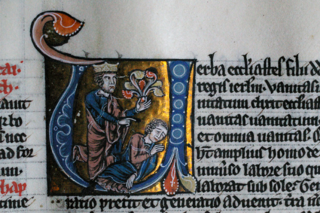
Ecclesiastes 1 is the first chapter of the Book of Ecclesiastes in the Hebrew Bible or the Old Testament of the Christian Bible. The book contains philosophical speeches by a character called Qoheleth composed probably between the 5th and 2nd centuries BCE. Peshitta, Targum, and Talmud, as well as most Jewish and Christian readership, attribute the authorship of the book to King Solomon. This chapter contains the title of the book, the exposition of some fundamental observations and the problem of life, especially the failure of wisdom.

Ecclesiastes 3 is the third chapter of the Book of Ecclesiastes in the Hebrew Bible or the Old Testament of the Christian Bible. The book contains philosophical speeches by a character called 'Qoheleth', composed probably between the fifth and second centuries BC. Peshitta, Targum, and Talmud attribute the authorship of the book to King Solomon.
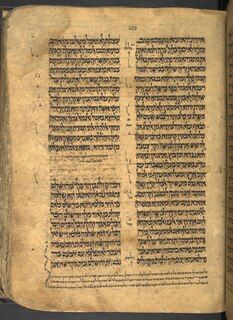
Ecclesiastes 2 is the second chapter of the Book of Ecclesiastes in the Hebrew Bible or the Old Testament of the Christian Bible. The book contains philosophical speeches by a character called Qoheleth, composed probably between the 5th and 2nd centuries BCE. Peshitta, Targum, and Talmud attribute the authorship of the book to King Solomon.

Ecclesiastes 4 is the fourth chapter of the Book of Ecclesiastes in the Hebrew Bible or the Old Testament of the Christian Bible. The book contains philosophical speeches by a character called '(the) Qoheleth', composed probably between the fifth and second centuries BCE. Peshitta, Targum, and Talmud attribute the authorship of the book to King Solomon. This chapter discusses life's hardship and life's companions.
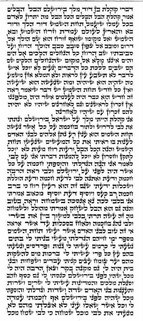
Ecclesiastes 5 is the fifth chapter of the Book of Ecclesiastes in the Hebrew Bible or the Old Testament of the Christian Bible. The book contains philosophical speeches by a character called '(the) Qoheleth', composed probably between the fifth and second centuries BCE. Peshitta, Targum, and Talmud attribute the authorship of the book to King Solomon. This chapter contains the advice on how to approach God the right way, and the discussion about poverty and wealth.

Ecclesiastes 6 is the sixth chapter of the Book of Ecclesiastes in the Hebrew Bible or the Old Testament of the Christian Bible. The book contains philosophical speeches by a character called '(the) Qoheleth', composed probably between the 5th and 2nd centuries BC. Peshitta, Targum, and Talmud attribute the authorship of the book to King Solomon. This chapter deals with wealth and insatiability.
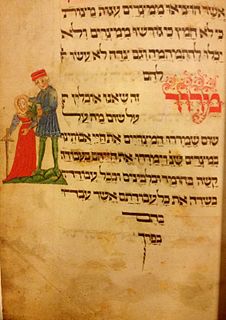
Ecclesiastes 7 is the seventh chapter of the Book of Ecclesiastes in the Hebrew Bible or the Old Testament of the Christian Bible. The book contains philosophical speeches by a character called '(the) Qoheleth', composed probably between the 5th and 2nd centuries BC. Peshitta, Targum, and Talmud attribute the authorship of the book to King Solomon. This chapter deals with suffering and sin. The style of the first half is similar to that of the 'sentence literature' collections and, as in such collections, the sayings are linked by catchwords and thematic ties with the previous ones, with a series of "better ... than" presenting dialectic pairs of issues. The second half exposes the 'crookedness of life' that moves to the 'crookedness of humanity'.

Ecclesiastes 8 is the eighth chapter of the Book of Ecclesiastes in the Hebrew Bible or the Old Testament of the Christian Bible. The book contains philosophical speeches by a character called '(the) Qoheleth', composed probably between the 5th and 2nd centuries BCE. Peshitta, Targum, and Talmud attribute the authorship of the book to King Solomon. This chapter concerns human and divine authority with the advice that fear God is the wisest course.
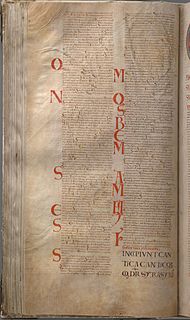
Ecclesiastes 10 is the tenth chapter of the Book of Ecclesiastes in the Hebrew Bible or the Old Testament of the Christian Bible. The book contains philosophical speeches by a character called '(the) Qoheleth', composed probably between the 5th and 2nd centuries BCE. Peshitta, Targum, and Talmud attribute the authorship of the book to King Solomon. This chapter focuses on foolishness, either in persons, in high places, in action, in words and even in national life.
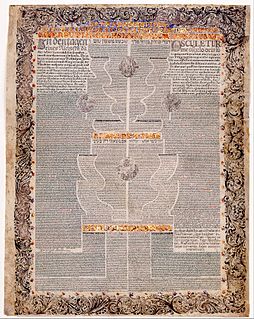
Ecclesiastes 11 is the eleventh chapter of the Book of Ecclesiastes in the Hebrew Bible or the Old Testament of the Christian Bible. The book contains philosophical speeches by a character called '(the) Qoheleth', composed probably between the 5th and 2nd centuries BCE. Peshitta, Targum, and Talmud attribute the authorship of the book to King Solomon. This chapter and the next are characterized by the encouragement to make decision and the need to act speedily.
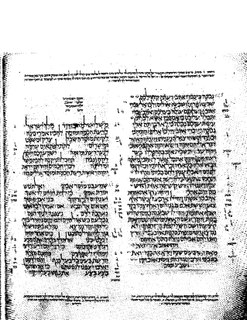
Proverbs 30 is the 30th chapter of the Book of Proverbs in the Hebrew Bible or the Old Testament of the Christian Bible. The book is a compilation of several wisdom literature collections: the heading in Proverbs 1:1 may be intended to regard Solomon as the traditional author of the whole book, but the dates of the individual collections are difficult to determine, and the book probably obtained its final shape in the post-exilic period. This chapter first records "the sayings of Agur", followed by a collection of epigrams and aphorisms.

Proverbs 26 is the 26th chapter of the Book of Proverbs in the Hebrew Bible or the Old Testament of the Christian Bible. The book is a compilation of several wisdom literature collections, with the heading in 1:1 may be intended to regard Solomon as the traditional author of the whole book, but the dates of the individual collections are difficult to determine, and the book probably obtained its final shape in the post-exilic period. This chapter is the last part of the fifth collection of the book, so-called "the Second Solomonic Collection."

Proverbs 27 is the 27th chapter of the Book of Proverbs in the Hebrew Bible or the Old Testament of the Christian Bible. The book is a compilation of several wisdom literature collections, with the heading in 1:1 may be intended to regard Solomon as the traditional author of the whole book, but the dates of the individual collections are difficult to determine, and the book probably obtained its final shape in the post-exilic period. This chapter is the last part of the fifth collection of the book, so-called "the Second Solomonic Collection."

Proverbs 29 is the 29th chapter of the Book of Proverbs in the Hebrew Bible or the Old Testament of the Christian Bible. The book is a compilation of several wisdom literature collections, with the heading in 1:1 may be intended to regard Solomon as the traditional author of the whole book, but the dates of the individual collections are difficult to determine, and the book probably obtained its final shape in the post-exilic period. This chapter is the last part of the fifth collection of the book, so-called "the Second Solomonic Collection."

Proverbs 18 is the eighteenth chapter of the Book of Proverbs in the Hebrew Bible or the Old Testament of the Christian Bible. The book is a compilation of several wisdom literature collections, with the heading in 1:1 may be intended to regard Solomon as the traditional author of the whole book, but the dates of the individual collections are difficult to determine, and the book probably obtained its final shape in the post-exilic period. This chapter is a part of the second collection of the book.

Proverbs 24 is the 24th chapter of the Book of Proverbs in the Hebrew Bible or the Old Testament of the Christian Bible. This chapter specifically records "the sayings of wise".

Proverbs 10 is the tenth chapter of the Book of Proverbs in the Hebrew Bible or the Old Testament of the Christian Bible. The book is a compilation of several wisdom literature collections, with the heading in 1:1 may be intended to regard Solomon as the traditional author of the whole book, but the dates of the individual collections are difficult to determine, and the book probably obtained its final shape in the post-exilic period. This chapter is a part of the second collection of the book.

Proverbs 21 is the 21st chapter of the Book of Proverbs in the Hebrew Bible or the Old Testament of the Christian Bible. The book is a compilation of several wisdom literature collections, with the heading in 1:1 may be intended to regard Solomon as the traditional author of the whole book, but the dates of the individual collections are difficult to determine, and the book probably obtained its final shape in the post-exilic period. This chapter records a part of the second collection of the book.

Proverbs 16 is the sixteenth chapter of the Book of Proverbs in the Hebrew Bible or the Old Testament of the Christian Bible. The book is a compilation of several wisdom literature collections, with the heading in 1:1 may be intended to regard Solomon as the traditional author of the whole book, but the dates of the individual collections are difficult to determine, and the book probably obtained its final shape in the post-exilic period. This chapter is a part of the second collection of the book.

Proverbs 12 is the twelfth chapter of the Book of Proverbs in the Hebrew Bible or the Old Testament of the Christian Bible. The book is a compilation of several wisdom literature collections, with the heading in 1:1 may be intended to regard Solomon as the traditional author of the whole book, but the dates of the individual collections are difficult to determine, and the book probably obtained its final shape in the post-exilic period. This chapter is a part of the second collection of the book.














